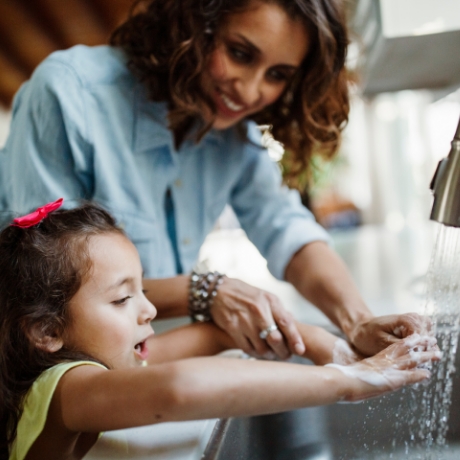Common Reasons You Have No Hot Water
When your shower suddenly runs cold, it can feel like your home, and water heater, have turned against you. And fixing or replacing a whole water heater probably isn’t high on your to do list. The good news? Most causes of no hot water are fixable, especially with the right know-how. Here are a few of the most common reasons your water heater might not be functioning properly.
Ignition or Power Problems
If you have an older gas water heater, the pilot light might be out or flickering. That can happen if the thermocouple is failing, ventilation is poor, or debris has built up near the flame. A professional plumber can inspect the gas valve, check your gas supply, and make sure there are no signs of a gas leak.
However, newer water heaters rely on electronic ignition systems that can fail when components become dirty or corroded. If your unit clicks but won’t ignite, it’s likely an ignition issue that needs expert repair. For electric models, faulty wiring or a bad heating element can also keep the system from heating properly.
Faulty Heating Components
Sometimes the issue lies within the water heater itself. Gas valve failure, faulty heating elements, or thermostat malfunction can all stop your system from producing reliable hot water. If these components wear out, the water heater tank can’t maintain temperature evenly, leaving you stuck with cold water instead of comfort.
Sediment or Corrosion Buildup
Over time, minerals in your water settle inside the bottom of your water heater tank, causing sediment buildup. This layer blocks heat transfer, makes your system less efficient, and can even damage the anode rod inside your water heater. Regular maintenance and flushing help prevent long-term damage and keep your water heater functioning properly.
Aging Equipment
Even well-cared-for systems lose efficiency with age. If your unit is older, repairs might only provide short-term relief. A professional plumber can help determine if a new model would be the best solution, whether that means replacing worn parts or upgrading entirely to restore reliable hot water throughout your home.
What You Can Safely Check Before Calling the Pros
Finding no hot water in your house can be frustrating, especially when you’re in the middle of a shower or trying to rinse dishes at the sink. While some problems need a licensed plumber, there are a few simple things you can safely check before scheduling a visit. These quick steps might reveal what’s causing the problem or help you describe what’s happening when you call for help.
Check Your Power or Gas Source
If you have an electric water heater, make sure your unit is receiving power and the breaker hasn’t tripped. A tripped breaker is one of the most common reasons your system suddenly stops heating water. Reset it carefully, and if it fails again, stop there and call for professional repair. It’s also smart to glance at your owner’s manual to confirm your settings are in the correct position before restarting the unit.
If your heater runs on gas, check that the gas supply tube is connected securely and the gas valve is in the correct position. The pilot light should be burning steadily; if it’s out, relight it only if you’re comfortable doing so and you don’t smell gas. A strong gas smell could mean a gas leak, which needs immediate attention.
Check the Thermostat Setting
Sometimes the problem is as simple as a thermostat that’s not set correctly. Make sure the temperature control is around 120°F—that’s warm enough to heat water efficiently without scalding. If adjusting it doesn’t help, you could be dealing with faulty heating elements, a valve that’s not closing properly, or a thermostat issue that needs repair or replacement.
Listen and Look for Warning Signs
Stand near your tank and listen closely. Strange noises, popping sounds, or rumbling often mean sediment has built up at the bottom of the tank. You might also notice low pressure or irregular flames in gas water heaters, both of which affect heat distribution. Newer water heaters may have safety sensors that shut them down when something’s off, which is a good feature, but one that sometimes points to a bigger problem that needs a licensed plumber’s inspection.
When to Call a Licensed Plumber
If you’ve checked your power, thermostat, and pilot light and still have cold water, it’s time to bring in a professional. A licensed plumber can inspect your gas lines, test the gas pressure, and assess your water heater tank for hidden issues like a failing valve, corrosion, or buildup that lead to poor performance. They’ll also make sure your heater is running safely and find the best solution to restore steady heat and reliable performance throughout your home.
Cold showers don’t have to become your new normal. When simple fixes don’t solve it, calling Polly Plumbing ensures your heater gets expert care and your house stays warm, comfortable, and worry-free.


